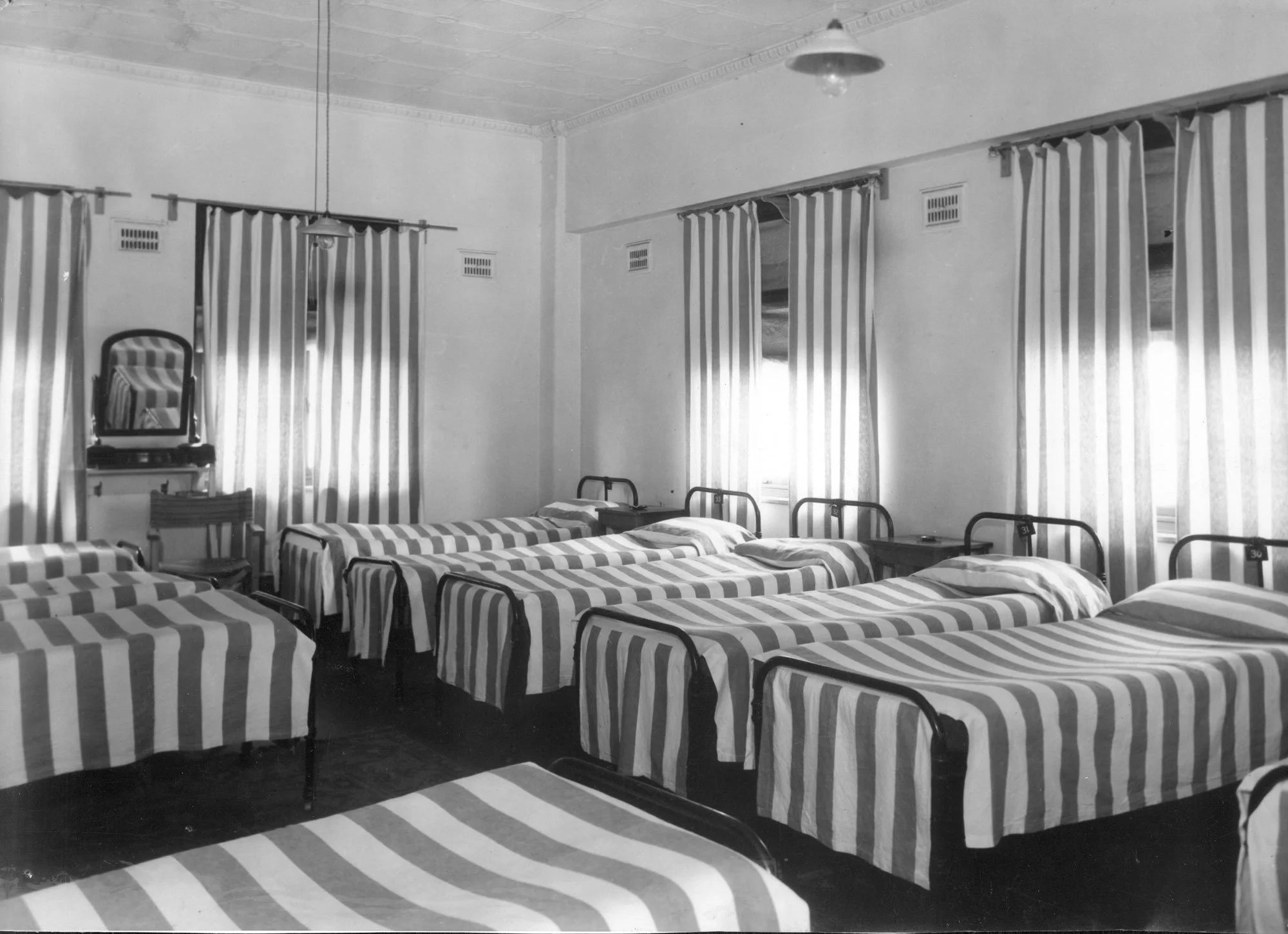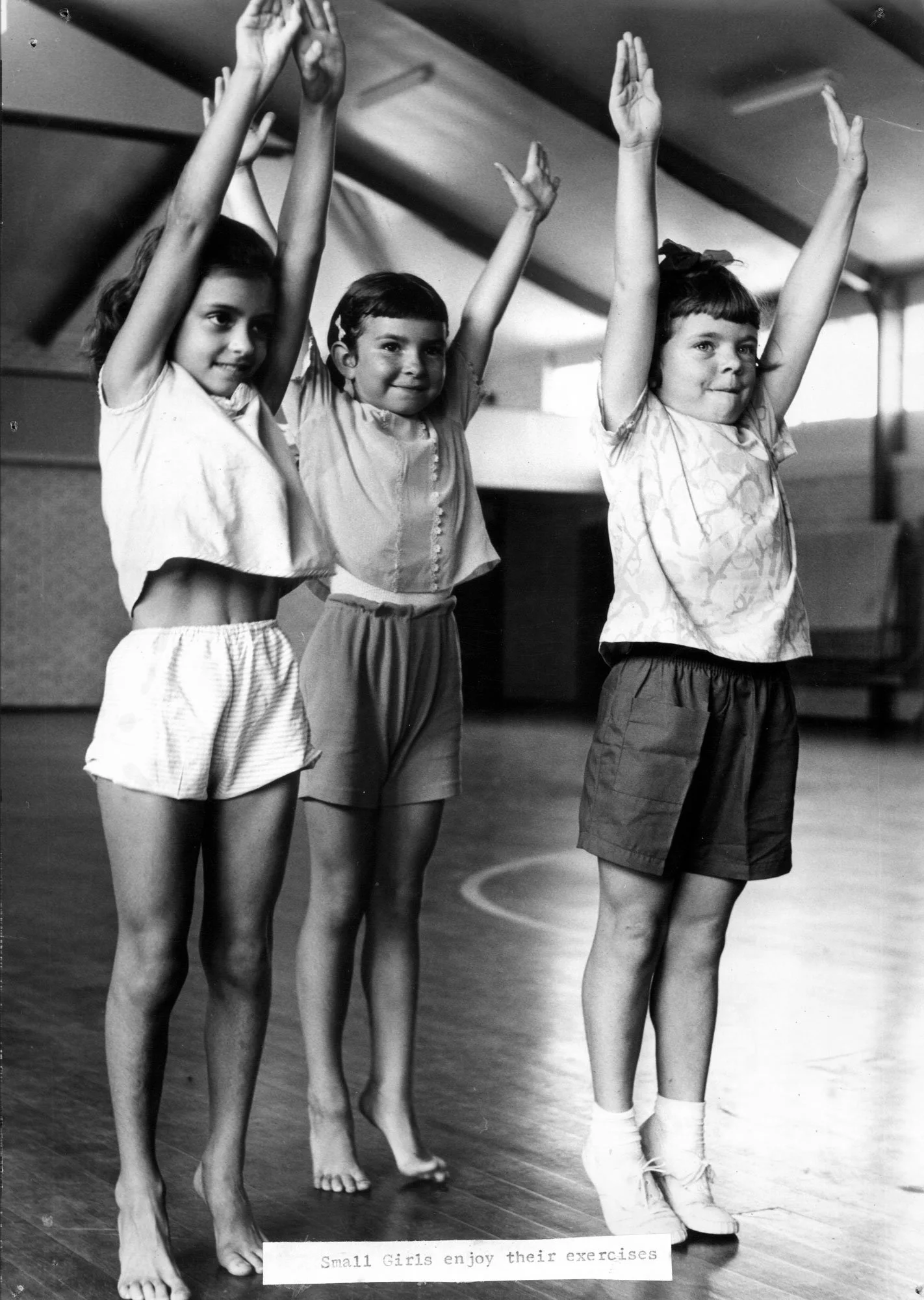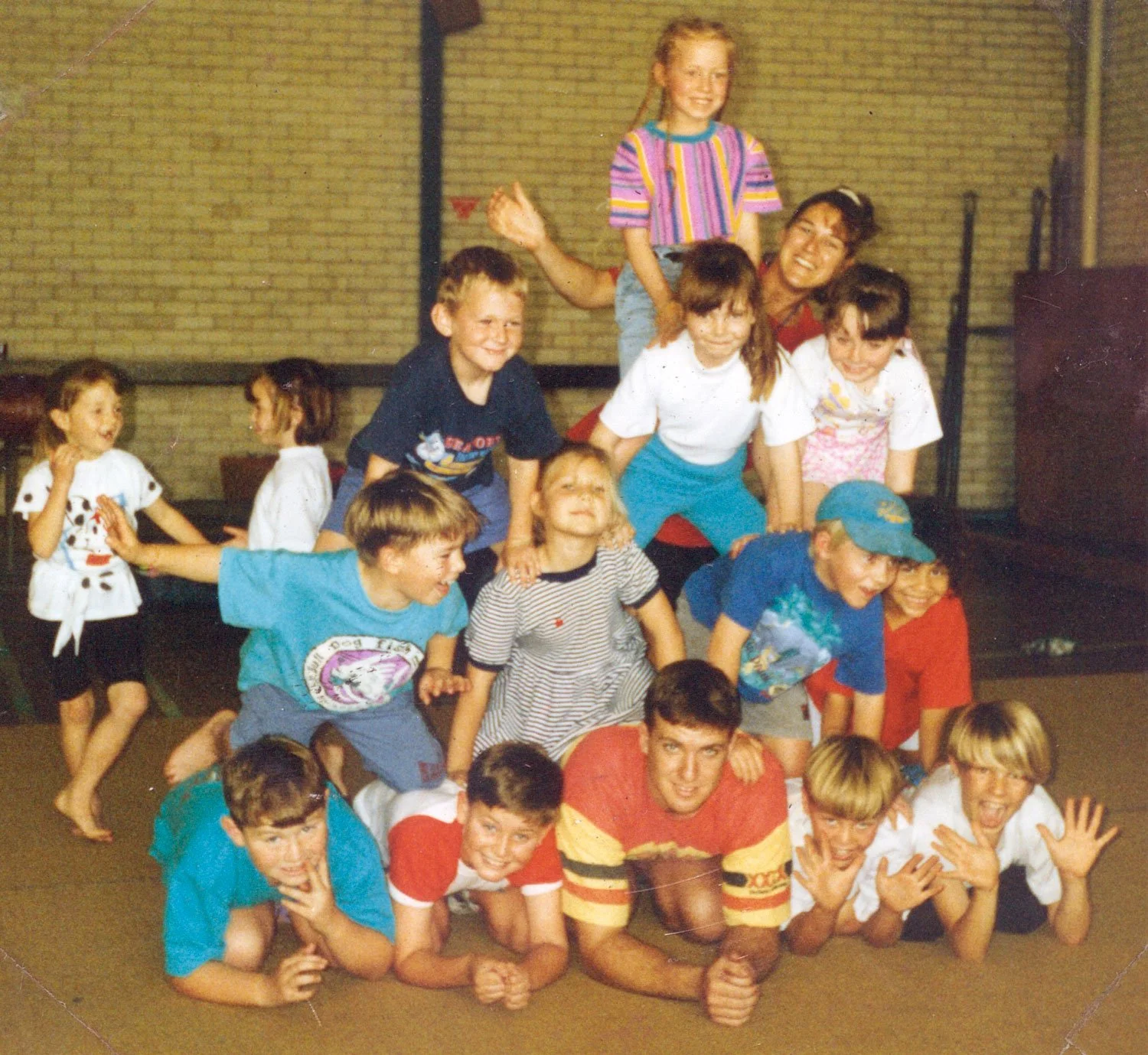Our History
YWCA Hunter Region is an independent not-for-profit, member-based women’s organisation associated with the oldest and largest women’s organisation in the world – World YWCA – and YWCA Australia.
Since its inception in 1921, through the shifting cultural trends and societal pressures of the past century, the YWCA Hunter Region has responded to the social and practical needs of women and girls.
For women at critical times – students, working women, young brides, service women, mothers, and new migrants to Australia – the YWCA in the Hunter has provided safe accommodation for women and programs and activities for personal growth, well-being, and belonging. Clubs and activities for children and youth have promoted health and good citizenship at every stage of development, symbolised by the YWCA’s “triangle of happiness” – body, mind, and spirit in balance.
The YWCA creates opportunities for growth and the empowerment of girls and women at a local, national and international level.
As the YWCA in the Hunter has grown and changed over the years, its concern for women locally and globally has remained rooted in a Christian concern for humanity. There is a common vision across the Y of peace, justice, freedom, equality, health, dignity and advocacy for all through women’s leadership.
What began as the Young Women’s Christian Association of Newcastle is now YWCA Hunter Region.
We serve young and old, women and families, and people of any faith, with the aim of supporting, connecting and empowering women and families for a stronger community.
1920s
Early YWCA Board of Directors. Back row: Mis Viv. McDonald (3rd), Mrs. K.D. McDonald (4th), Mrs. J.K. MacDougall (8th), centre row: Mrs. Isaac Winn (President) (11th), front row: Mrs. Ida Douglas (last).
1921 Newcastle YWCA opens at 113 King St.
First hostel for women and girls opened in Thorn Street.
"The health of the body as well as the mind should be considered, and if girls are to benefit by nude bathing, then why not do it?" said Miss Johnston, secretary of the Newcastle YWCA. The advocacy by Sir Herbert Barker, the famous London surgeon, of bathing in the nude has been the subject of many discussions among Newcastle People.
Newcastle Sun, 25 March, 1924.
1930s
1934: Girl Citizens theme “A MODERN CITY”
1935: Girl Citizens theme “HEALTH – BODY – MIND – SOUL”. Girl Citizens are active in Newcastle and Cessnock.
“The period following the First World War saw new emphasis in the program of the YWCA. There was a new concern for wage-earning girls, with an increase in social service, educational classes and leisure-hour clubs. There was a developing program for the care of immigrants, travellers’ aid, hostels, and employment agencies. There was an increased interest in physical activities, gymnastics and public health were in great demand.” Chronology, YWCA Handbook, early 1970s.
Girl Citizens Club, Envision group meeting at Stockton, Congregational Church, 1932. (l. to r.) Mrs. Harris, Counsellor, Margaret McDonald, Elsie Seely, Mavis Foster, Evelyn Coleman, Jayce Parker, Elsie Parker, Lorna Waring, Heather Sommerville, Olga Boyd, Marjorie Boyd, Miss Mildred Dawkins, General Secretary, Newcastle YWCA.
1940s
The Red Room at the A.C.F. Y.W.C.A Leave House, Hunter Street, Newcastle, 1944.
In WWII, the YWCA established a leave house and canteen for service women in Hunter Street, and in 1942 opened its sandwich bar in a city arcade to raise funds for a new hostel, staffed by volunteers. Newcastle Herald, 2 February 1956.
“The present membership drive is laying a foundation for a solid post-war programme, framed to help women and girls find stability and fellowship.” Newcastle Sun, 28 September 1946
Post WWII: established English language classes to assist newcomers, clubs for overseas brides, and Business and Professional Women’s Clubs in the Newcastle area.
1950s
1956: Volunteer Staff Runs Successful Sandwich Bar.
An estimated 78,000 hours of voluntary work has helped make the Newcastle YWCA sandwich bar one of the most successful money-raising ventures in its history.
Miss Florence Christian said last night, “It doesn’t matter what happens to us in life, it is what we do with what happens that makes us what we are.” Miss Christian, who is Field Secretary for Training in the Y.W.C.A. was guest speaker at the Y.W.C.A. Dinner Club. ... Miss Christian advised girls to make as many friends as possible, especially in clubs, “to talk our troubles over and find relief.” Newsclipping, 13 April, 1954.
Junior Girl Citizens, picnic to Stockton Beach, January 1952. Anita Seemor, Carol Handel, Janice Kingsford, Pat White, Judith Allison, Ann Lamb, Binny, Merle Right.
The YWCA Hostel in Parkway Avenue, Bar Beach – Elizabeth House – was built in 1953 offering accommodation at reasonable rates. It also offered ‘wholesome lifestyle’ for ‘business girls and students’. Officially opened by the Governor (Sir John Northcott) in May of 1954, the hostel had already filled to capacity, with 64 girls in residence. Elizabeth House, named in honour of the Queen, was dedicated to the women who served in the armed services, industries and community during World War II.
1955: 100th Anniversary of YWCA movement, started in London, active in 67 countries.
“In all of them it has the same basic approach. Women’s worries are the “Y’s” worries, its leaders say. And everywhere, it has proved its genius for seeing a need first, and filling it.” Sydney Morning Herald, April 21, 1955.
1960s
Young girls enjoying exercise in the new gym.
“Youth Centre opened in Cook’s Hill. The large, well-equipped building which was formerly the home of the late Mr. and Mrs. Lucerne, is ideally suited for the activities of the “Y” but is already proving too small for the amount of interest which young people are taking.” ... In declaring the building officially open, the Lord Mayor Ald. F. J. Purdue handed the key to the Chief Girl Citizen, Thursa McIntosh.
YWCA Hunter, 24 Dawson Street, Cook’s Hill, before alterations to include the new gym, 1965.
Detail from fundraising appeal for gymnasium construction. The gym offered dramatically improved access to sports facilities for thousands of girls.
“Inadequate sporting facilities have long handicapped women’s sports in the district and it is time that the young women had a place of their own.” - Miss Muriel White, Executive Director of the YWCA.
“We want people to understand that it is just as important to prepare girls for well-balanced citizenship as it is boys, that their mental and physical good health is as important to the welfare of the community, that in attempting to fulfil the needs of young people in these trying times the YWCA is encouraging them to accept responsibility and exploit their talents for leadership.”
1961 Stats: 860 members. YWCA youth groups (Senior and Junior Girl Citizens and the Reserve Girl Citizens), the sporting clubs (hockey, basketball, tennis, foils and judo groups), women’s clubs (Newcastle Women’s Auxiliary, Hostel Auxiliary, Hamilton Mothers’ Club, Newcastle Mothers’ Club, Sarala Club, Young Wives’ Club), the YWCA Hostel Committee, thrift collections, Tapawingo Bramble Lodge holiday house committee, the abattoirs canteen and the sandwich bar committees, the Christmas Tree Festival committee, groups combined with the YMCA (senior and junior YY clubs), and the YWCA extension group at Wallsend.
“Leadership is in the hands of the young and there is a need for younger people to take an interest in the YWCA and similar movements... The genius of the YWCA is that it works largely through volunteers and since 1954 the enthusiasm of these people has given Newcastle a youth centre and gymnasium in Cook’s Hill and a girls’ hostel in Parkway-avenue, Hamilton. Newcastle is a city where the women work as hard as their menfolk and the YWCA is a tribute to this spirit.” Miss Muriel White, Executive Director of Newcastle YWCA, interviewed in the Newcastle Morning Herald, 19 September 1968.
“Are you bored with dreary housework? Do you feel that your brain’s greatest challenge is the weekly grocery list? Well, cheer up .... the Y.W.C.A. has set its sights on you.” Novocastrian, 1969.
1970s
1971: Golden Jubilee (1921-1971) of YWCA of Newcastle.
“A photographic display and competition will be held by Newcastle YWCA for Mattara. ... The theme of the exhibition is ‘Behind every face there is a soul,’ and each entry will depict this.” September, 1970, Newcastle Sun.
Coffee Drop-in: Friday night, folk singing, indoor games, art sessions, something for everyone, YWCA Youth Centre, Cook’s Hill. (newsclipping, 15 September, 1970.)
Canoe and kayak excursion at the lake, 1970s.
“From the beginning of its history the YWCA has been a pioneer movement, seeking to meet the needs of the girls and women of the day, and ready to discard a way of work when the need for it has ceased, or to hand it over to another agency which may be able to deal with it better. ... We need people, both young and old, who have the vision to look ahead and anticipate the changing needs of women and girls; people who have the courage to discard what is outmoded and unnecessary in our ways of work and service; people who have the persistence and determination to continue to experiment in spite of frustration and difficulties; and who will learn from failure as well as from success. We must learn to be inclusive, to meet the needs of all people, the unattractive and difficult as well as the pleasant ones.” From the YWCA Handbook, early 1970s.
Y goes suburban: Stockton, Jesmond, Newcastle University, Edgeworth “Newcastle YWCA has extended outside field work to the Edgeworth area at the request of local mothers.”
“When a girl’s car splutters, coughs or stops, she needs a mechanically-minded male, a sturdy bank account, or an adoring father to get it going.” Course in mechanics for women (and men!), Newcastle Morning Herald, September 1970.
“In youth work ideas need to be flexible. You have to keep in mind that your ideas are not necessarily the right ideas.” Mrs. Chris Nipperness, newly appointed to staff of YWCA, Newcastle Morning Herald, September 10, 1970.
“Many people imagine the YWCA to be a world of cosy hostels, correspondence courses, tea parties and high-sounding ideals. Actually, ... if you look at its history, it has always been to the front in adopting a practical approach to the problems of women.” John Hamilton, On the Spot column highlighting national Y president Dr. Una Porter’s advocacy for tax-free open access to contraceptives. 1972.
1980s
Young women learn to type at the Youth Centre.
Beneficiaries of training through the YWCA.
In the 1980s, President Ellice Dick secured government funding for a program for the training of unemployed young people. This program enabled the Y to survive during the 1980s, and Ellice was employed as program co-ordinator/manager. Other programs and activities were introduced to increase public interest, including accommodation at Dawson Street.
The late 1970s - early 1980s was a crucial time at the Y. Interest in charitable membership organisations declined dramatically in these years, and the Y's potential for social relevance was hidden behind its 'tea and cakes stall' reputation.
Patricia Thorne, Executive Director, was let go due to financial constraints (waning membership and upkeep costs on the hostel and Dawson Street properties) and the YWCA Hunter operated without an Executive Director for several years.
1986: Additional financial relief came from a bequest from McCloud, Kelso & Lee. The bequest enabled the Y to appoint an Executive Director, and Ellice Dick was appointed due to her efforts to save the Y. Gwenda Brown, member since 1966, served as President.
1989: Elizabeth House hostel and Dawson Street properties sustained considerable damage in the Newcastle earthquake.
“Lamington days last year proved to be a steady source of income ... Kath Stewart, our gracious and charming President, is due to retire from the Board of Directors this year as she has completed her term of office. Her strong and courageous leadership has been appreciated over the years. Kath has been a great standby in pursuance of her official duties as well as being a superb mixer of cocoa for Lamingtons.” March-April 1980 The Blue Triangle Newsletter.
1990s
Encore: an after-breast cancer gentle exercise program launched in 1998.
1995: Upon Ellice Dick's retirement, Pamela Hallett was appointed Executive Director. Under Pamela, the Y took on a new name, YWCA Hunter Region, to reflect the breadth of its area of service. The Y undertook major refurbishment of Dawson Street and Elizabeth House.
Amalgamation with YWCA NSW was considered at this time, but Hunter Region remained independent.
1998: Encore After Breast Cancer exercise program commenced - being the longest-running Encore program in NSW.
In the late 1990s, government regulation and accreditation of OOSH and Vacation Care Programs was instituted. The Y program earned consistently high ratings.
Playing in the Gymnasium, 1994 Vacation Care.
2000s
Students in the YWCA Every Girl program (the new incarnation of Girl Citizens) model their "diversity glasses". Every Girl is a program for girls aged 9-14 that develops positive self-esteem, social skills, team building, leadership development, and resilience.
2007: Elizabeth House, the Parkway hostel, sold to another group concerned with low-cost accommodation. Y use had declined after the Teachers College moved from Union Street to Callaghan in the mid-1970s.
2008: InspYre program started: A community-based mentoring program for young mothers.
2010s
2011: New strategic mission statement: YWCA Hunter Region exists to support, empower and connect women and families for a stronger community.
2012: Pamela Hallett retired after 17 years of service as the Executive Director. Jenny Baldwin appointed Executive Director.
2014: Current programs reflect the Y’s ongoing concern to facilitate services and programs for women and families: Kindergym, ‘Y’ Kids Playgroup, YWCA Every Girl program, Vacation Care for children K – 6, Encore after breast cancer exercise program, university accommodation for international students, court hire/hall rental for basketball, dance, taekwondo and martial arts, youth groups, and community activities.
2014: YWCA Hunter Region, in partnership with Newcastle Region Library and Hunter Writers Centre, holds the she: true stories portrait exhibition.
2020s
2018: YWCA Hunter and YWCA Canberra remain independent while the rest of YWCA organisations across Australia merge with YWCA Australia.










